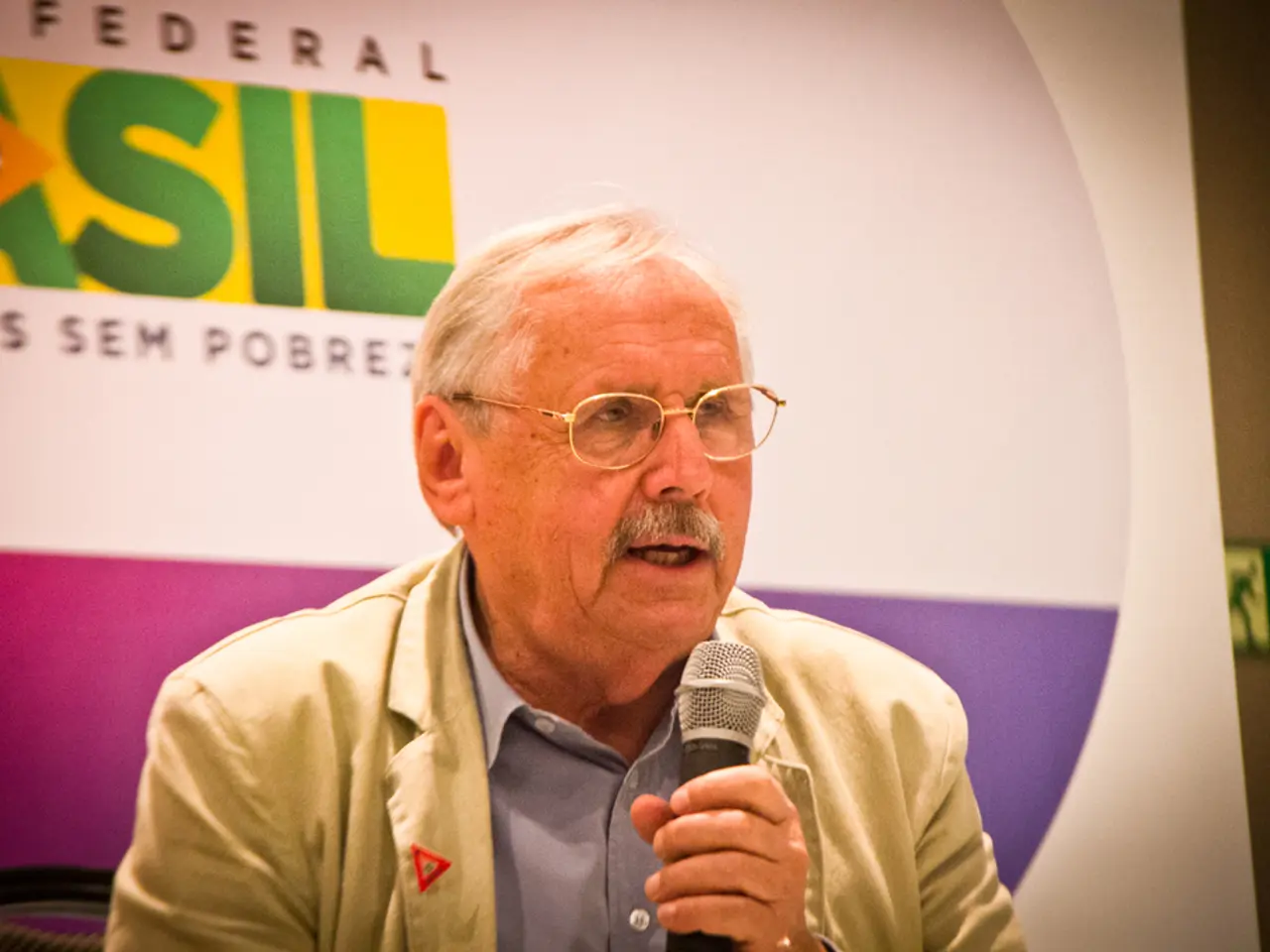First-ever 'Understanding Your Rights' seminar for individuals who are deaf or hard-of-hearing takes place in Fresno
In the midst of escalating immigration enforcement actions under the Trump administration, a significant event took place in Fresno, California. The workshop, a first-of-its-kind, aimed to educate the deaf and hard-of-hearing community about their legal rights during immigration proceedings.
The event, which lasted for nearly 90 minutes, drew dozens of people, including Jesus, a deaf individual who expressed a desire for respect and safety during the enforcement actions. Jesus, like many others, has been observing the immigration enforcement and finds them terrifying.
Viridiana Alvarez, the executive director of the Deaf and Hard of Hearing Service Center, organised the event. She emphasised the importance of understanding the legal rights of the deaf and hard-of-hearing community, particularly during immigration enforcement.
The workshop covered several key points. Attendees were encouraged to inform authorities about their need for an American Sign Language (ASL) interpreter. They were also advised to assert their right to remain silent, a critical aspect of effective communication during immigration proceedings.
The Americans with Disabilities Act (ADA) offers specific protections for the deaf and hard-of-hearing community. Under the ADA, individuals have the right to request and receive qualified interpreters, as well as reasonable accommodations to communicate effectively. These rights were discussed in detail during the workshop.
Brenda Ordaz with the Coalition for Humane Immigrant Rights was also present, reinforcing the message that exercising these rights can help community members address any potential legal violations during enforcement.
The Deaf and Hard of Hearing Service Center is distributing cards detailing these rights for people to carry. These cards provide a valuable resource for the community, helping to bridge the gap between legal protections and enforcement practices.
Unfortunately, reports suggest that these rights are not always fully upheld in practice. For example, a deaf DACA recipient, Javier Diaz Santana, was detained during a federal immigration raid and did not receive adequate accommodations for his disability while in custody.
Federal judges have ruled that providing a sign language interpreter to a detained deaf immigrant is not only common sense but also a legal right, reinforcing the importance of effective communication under the ADA during immigration enforcement.
In conclusion, it is crucial for the deaf and hard-of-hearing community to be aware of their legal rights during immigration enforcement. Workshops like the one held in Fresno can play a vital role in ensuring that these rights are understood and upheld, helping to create a more inclusive and fair immigration system for all.
- In light of the escalating immigration enforcement actions, it's essential for the deaf and hard-of-hearing community to focus on their health-and-wellness, including mental-health, by being aware of their legal rights during such proceedings.
- To promote a lifestyle that prioritizes health and well-being, the Deaf and Hard of Hearing Service Center, in collaboration with advocacy groups, is distributing cards detailing the specific legal rights under the Americans with Disabilities Act, aiming to safeguard the rights of the deaf and hard-of-hearing community during immigration enforcement.




